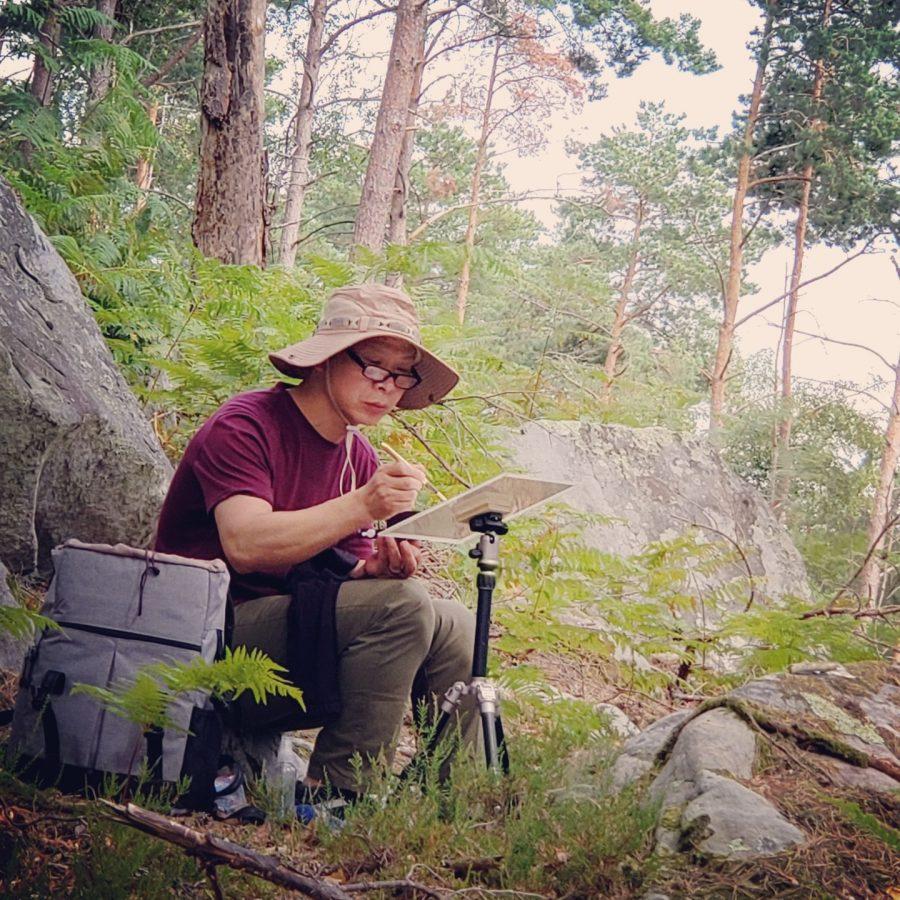Follow the footsteps of Impressionism: Yeqiang Wang
August 17, 2019
Yeqiang Wang is an associate professor of the art department at Washburn University. He has been teaching at Washburn for 12 years.
Wang received the Sweet Sabbatical Award from the university, which is a fund for art faculties offering them the financial support to do art research nationally and internationally.
This fund supported Wang to do research on impressionism. For this trip he stayed in China for 36 days, from May 24 to June 30. In Europe he stayed for 36 days as well, from July 7 to Aug. 13. He visited five countries in Europe including France, Serbia, Hungary, Czech Republic and Greece.
“I have planned my trip for the purpose of doing research on Impressionism. I want to compare the French Impressionism with those socialist and all previous associated countries. So, China is the associated country, and the eastern European countries like Czech, Hungary and Serbia used to be socialist countries. So, I want to see what’s going on there.” said Wang.
During the trip, Ye painted 39 watercolor paintings and visited many of art museums.
“It’s a very nice experience to follow the footsteps of French impressionists. For instance, Monet’s garden and Rouen, where Monet painted 30 paintings of the cathedral there,” said Wang. “It’s a wonderful experience to actually paint where they used to paint and to get the spirit or inspiration from them.”
During his trip to China, Wang joined in an art organization and painted outdoors with other artists. He wanted to find out why these artists are so enthusiastic about painting outdoors. He was amazed by the quality of work they do, and learned where the paintings would go.
“I spent three or four days painting together with those plein air painters, and interviewed the person in charge of that organization, which is quite interesting. The answer is now, the economy is better and better, and people can afford to buy cars, to travel wherever they want to go, and they have money to support themselves in painting. They don’t care if they sell or not. They just want to paint for fun,” said Wang. “I found that this kind of purpose of painting is not practical because you don’t really make money from it. That’s better for art. I guess, at the very beginning of the impressionist movement, nobody was really thinking about making money from it. I think now, the Chinese artists are doing it.”
Wang wants to pass his knowledge and skills to students and hopes more and more students can grow into better artists.
“Be a wise learner. There are always things you can learn and improve yourself. Being humble is being smart. Even if you are the great artist, you never stop learning,” said Wang. “And ask questions. Ask a lot of questions of why. So you can really learn from these, and then you’ll be very impressed by what you have found or discovered there.”
Edited by Adam White, Jason Morrison



